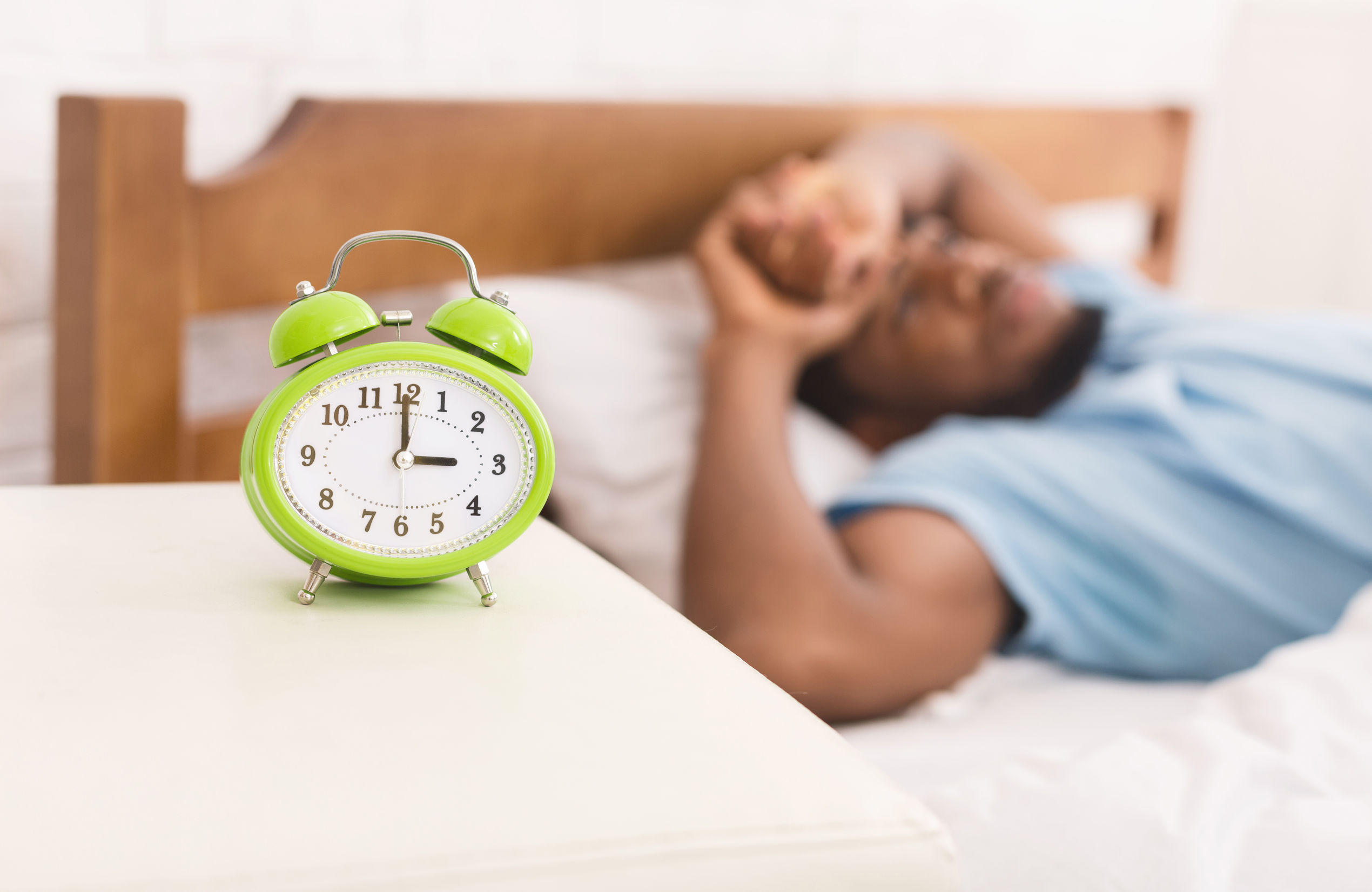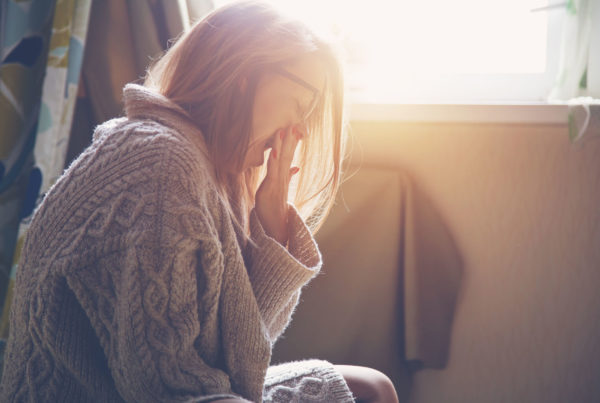”Maine, do you have a difficult time either falling or staying asleep or both? Have you considered taking sleep supplements? This week's article looks to serve as a guide to help you decide which supplement could be most helpful for you. We hope you find this helpful and informative!
Reading Time: 15 Minutes
MWi Hacks:
- Find out the difference between melatonin and valerian
- Identify which would work best for you and have confidence in your choice
MWi Summary:
- Valerian and melatonin are two popular sleep supplements. Valerian increases sleep drive, while melatonin strengthens sleep rhythm.
- Sleep drive refers to the homeostatic system that maintains a balance between sleep and wakefulness.
- Sleep rhythm is our circadian rhythm, which is driven by light and darkness.
- Valerian has calming properties and has been connected to ease of falling asleep and improves quality and quantity of sleep. Similar supplements are GABA and jujube.
- Melatonin helps regulate and facilitate sleep. Supplements that are similar to melatonin are NAD and omega-3 fatty acids.
- How people react to sleep supplements is highly individualized.
Valerian v. Melatonin: What’s the Difference for Sleep?
Valerian and melatonin are two of the most popular sleep supplements. Both have been shown in studies to help people fall asleep more easily, to address symptoms associated with insomnia, and to improve the quality and quantity of nightly rest.
But these two frequently used sleep-boosting supplements work very differently to achieve their results. Understanding the different ways these supplements interact with the body can help you determine which one might be a better fit for you, in consultation with your physician.
One important way to differentiate between valerian and melatonin is to look at how they interact with the body’s two main sleep systems: sleep drive and sleep rhythm.
These two systems work alongside one another to regulate sleep and wakefulness throughout the night, to ensure we get the rest we need AND have the alertness, energy, and focus we require to perform in our daily lives.
In terms of how they interact with the body to promote sleep, a fundamental difference between valerian and melatonin comes down to this:
Valerian increases sleep drive
Melatonin strengthens sleep rhythm
Before we look in more detail at valerian and melatonin (and some other natural supplements that affect sleep drive and sleep rhythm) let’s first take a look at the two sleep systems themselves—and how each one works to promote healthy sleep, and how they complement one another to provide us with an optimal balance of rest and wakeful focus and energy.
What is sleep drive?
Our internal sleep drive is a process of homeostasis—that’s a biological ability (and tendency) to maintain balance and stability within the body. Our bodies rely on homeostasis, this ability to maintain balance and equilibrium, for a number of key physiological functions. For example, maintaining core body temperature is a homeostatic process. Our bodies are constantly at work managing body temperature so we maintain a core temperature that hovers around 98.6 degrees Fahrenheit. (Shivering and sweating are two of the most overt signs of the body at work maintaining its core temperature.) Maintaining fluid balance, oxygen levels, blood sugar, and blood pressure are other examples of homeostatic processes within the human body.
Our internal sleep drive is homeostatic, too. This internal system works constantly to maintain a balance between sleep and wakefulness, by promoting alertness after sleep, and by gradually increasing sleep drive the longer we’ve been awake. It’s helpful to think about how sleep drive plays out over the course of a single day. If we’ve slept through the night, then first thing in the morning our sleep drive is low. We’re rested, and our bodies shift into modes of alertness and arousal as we launch an active, wakeful day. As the day wears on, and the longer we go without sleep, the body’s internal pressure for sleep increases, culminating—ideally—in a drowsy, sleep-ready state at bedtime. The rising and falling of sleep pressure is driven by a lot of complex neurobiological activity. Both wake- and sleep-promoting hormones and neurochemicals rise and fall throughout the 24-hour day, to adjust our internal sleep pressure “valve,” and elevate or lower our drive for sleep.
What is sleep rhythm?
Imagine for a moment if our bodies ran only on sleep drive. We’d wake in the morning feeling alert and get steadily more tired throughout the day, without any real variation. Each hour would be less wakeful than the one before it until we slept again. But that’s not how sleep and wakefulness actually work. We all experience different periods of time throughout the day when we feel more or less alert, and more or less sleepy.
For example: If you’re a morning person you probably do feel totally refreshed first thing in the a.m. But evening types tend to feel sleepy in the morning and become more alert as the day goes on. Many evening types feel at their most wakeful and focused at night.
This is the circadian sleep rhythm at work. Our bodies’ circadian clocks perform their own regulation of sleep and wakefulness, which runs independent of our homeostatic sleep drive. Our sleep-wake rhythms fluctuate during the day, giving us periods of alertness and sleepiness throughout the entire day. And the timing of those fluctuations varies, depending on our individual chronotype.
Circadian rhythms are driven predominantly by light and darkness, led by a master circadian clock located in a region of the brain known as the suprachiasmatic nucleus, or SCN. Light (or the absence of light—darkness) travels along the eye’s optic nerve to the SCN, where it cues the master clock, which then sends signals throughout the body—to peripheral circadian clocks that reside in the body’s cells, and to areas of the brain that regulate the production of hormones and neurochemicals that affect wakefulness and sleep. Arousing hormones (including cortisol, adrenaline, and norepinephrine) and calming hormones (including serotonin, GABA, and melatonin) fluctuate throughout the day. (So, too, does body temperature, which follows its own daily circadian rhythm and has a significant impact on drowsiness and alertness.) The result is a fluctuating rhythm of sleepiness and wakefulness throughout the 24-hour day.
The fluctuations of the circadian sleep rhythm are why a lot of us feel a bout of sleepiness in the mid-afternoon—a great time to get a dose of sunlight to perk up. And disruptions to the circadian sleep rhythm are one major reason for difficulty falling asleep and staying asleep, waking feeling un-refreshed in the morning, and struggling to focus and remain active and on-task throughout the day.
(A great many people live daily lives that are out of sync with their circadian rhythms for sleep and performance, which is precisely why I wrote my book, The Power of When, which is all about how to optimize your sleep and waking life with your chronotype.)
How valerian works with sleep drive
Valerian is what’s known as an anxiolytic—it has calming, relaxing, anti-anxiety properties. The root of the valerian plant, the part with medicinal value, boosts the levels of calming neurotransmitters in the brain, including GABA, a neurochemical that is critical for healthy sleep. (I’ve written in-depth about how GABA affects sleep.) Valerian also lowers blood pressure and heart rate. By increasing calming chemicals in the brain and lowering physiological arousal, valerian functions as a natural sedative, enhancing sleep drive.
Research shows that valerian can help people fall asleep more quickly, improve the quality of sleep, and increase amounts of nightly sleep. Valerian can also help ease the symptoms of insomnia, which are:
- Difficulty falling asleep
- Trouble staying asleep
- Waking very early
- Waking feeling unrefreshed
A review of research studies found that valerian has about an 80% effectiveness rate in improving sleep quality.
Valerian is often paired with another natural herb: hops. Yes, hops is the grain found in beer, and the combination of hops and valerian has been shown to be particularly effective in promoting relaxation and sleep. Hops itself can increase GABA levels in the brain, and also delivers sedating effects by lowering body temperature.
Other supplements have anxiolytic and sedative effects and can naturally boost sleep drive. Two I want to spotlight are:
Jujube, a plant that has fruit and seeds used to make supplements, has sedative and anxiolytic properties that may increase sleep drive. Two phytochemicals in jujube, saponins and flavonoids, trigger changes to neurotransmitters, including GABA and serotonin, which can make it easier to fall asleep and stay asleep. Jujube also contains a flavonoid compound, spinosin, which appears to trigger sleepiness through its effects on serotonin. The same saponin and flavonoid compounds that work to relax and promote sleep also appear to provide jujube’s anti-anxiety effects.
GABA, or Gamma-Aminobutyric acid, is an amino acid produced naturally in the brain. GABA is the body’s most important inhibitory neurotransmitter— it lowers the activity of neural cells in the brain and central nervous system, having the effect of moving the brain and the body into lower gear. By inhibiting neural activity, GABA enables the body and mind to relax and fall asleep and sleep soundly throughout the night. Low GABA activity is linked to insomnia and disrupted sleep. Regular readers will know I talk about GABA a lot in relation to sleep—it’s essential to the body’s overall mental and physical homeostasis, including for sleep. GABA is available in supplement form.
How melatonin works with sleep rhythm
Contrary to what many people think, melatonin is NOT a sedative. It is a sleep regulator and a sleep facilitator, and a key hormone in maintaining the healthy functioning of circadian sleep-wake rhythms. The body makes its own melatonin in the brain’s pineal gland, and the production of melatonin is stimulated by darkness. Exposure to light suppresses melatonin—that’s why the body’s melatonin levels stay naturally low during the day. That’s also why exposure to artificial light at night is so damaging to healthy sleep and to circadian rhythms. (You can read more about the hazards of nighttime light exposure—and steps you can take to limit its damaging effects—here.)
Melatonin promotes healthy sleep by helping to keep daily sleep-wake rhythms in sync, and may ease symptoms of insomnia for some people. Scientific research shows that melatonin supplementation can strengthen and improve sleep-wake cycles. With stronger, more regular sleep-wake cycles typically comes more healthful sleep patterns, including an easier time falling asleep and sleeping on a regular schedule. Melatonin has been shown to be effective in addressing insomnia symptoms (including trouble falling asleep and staying asleep) in older adults. As we age, our circadian clocks are more likely to fall out of sync, making older adults especially open to benefiting from supplemental melatonin to strengthen their circadian clocks and keep them ticking in sync.
I’ve written often about melatonin, and how to use it effectively to improve sleep. I’ve also written about the growing body of scientific research that shows melatonin’s array of health benefits beyond sleep. A powerful antioxidant, melatonin has been shown to have protective and therapeutic benefits for cardiovascular health and brain health, and is a potent anti-cancer agent, suppressing the growth of cancer cells, preventing metastasis, and improving the effectiveness of cancer treatment.
Melatonin isn’t the only supplement that can improve sleep rhythm.
NAD, short for nicotinamide adenine dinucleotide, is a coenzyme, which helps enzymes function effectively, and as such it performs a range of helper functions for the body, including several that are directly related to sleep. NAD helps the body’s circadian system communicate with cells. NAD also helps maintain the proper activity of the genes that communicate circadian messages, and works to repair DNA that directs circadian function.
The human body produces its own supply of NAD, and NAD is also available in supplement form. NAD production declines naturally with age. Age-related decline in NAD may be one reason that circadian rhythms are less robust and in sync with age, and sleep can become more restless and less restorative. And NAD’s impact on other health systems—including metabolism, cardiovascular, and brain health—can have powerful indirect effects on sleep cycles.
Omega-3 fatty acids. Research suggests that omega 3 fatty acids can boost your sleep quality, and help you fall asleep more quickly. Omega-3 fatty acids also appear to help the body produce melatonin. Studies show low levels of the omega 3 DHA cause melatonin deficiency—and that increasing levels of DHA cause melatonin levels to rise. And omega-3 fatty acids may offer protection for a gene protein that is involved in circadian rhythm function. Research has shown that the omega-3 fatty acid DHA reduces disruptions to the circadian clock gene Bmal1, one of several core clock genes that keep circadian clocks and rhythms functioning in sync.
Here’s a rundown of the sleep-supporting benefits of omega-3s.
What’s right for you?
The answer to that question is highly individual, and dependent on a number of factors, including your individual health profile, family history, age, genetics, lifestyle and habits. It’s important to consult your physician to determine the right natural therapy for your sleep issues. We can look broadly at sleep issues that indicate interference with sleep drive and sleep rhythm. What follows is not medical advice; it is information that you can use as a conversation-starter with your doctor, or a certified sleep-specialist.
There are several types of circadian rhythm sleep disorders, including delayed sleep phase disorder, irregular sleep-wake disorder, and shift work sleep disorder. People with these disorders often struggle to fall asleep and to get sufficient sleep. They often have chronic difficulty sleeping at the times they need to in order to function and meet the demands of their daily lives. Therapies that target sleep rhythm may be most effective for these people. As I’ve said, older adults who have symptoms of insomnia or difficulty getting sufficient sleep may benefit from natural therapies that strengthen sleep-wake rhythms.
Jet lag is a form of circadian sleep-wake disruption, and melatonin can be useful in alleviating symptoms of jet lag.
Adults and children with autism spectrum disorder (ASD) may find help for sleep from melatonin supplementation. That’s because people with ASD have been shown to have lower levels of melatonin than people without ASD. There’s a body of research showing melatonin can help children and adults with ASD sleep longer, get higher quality sleep, and fall asleep more easily, with additional benefits for behavioral issues.
For general insomnia, when taken at the right dose, melatonin may help many of us fall asleep more easily and more quickly. It’s less clear from the current scientific evidence that overall sleep amounts and sleep quality are improved by melatonin. Here’s a recent primer I wrote on do’s and don’ts for using melatonin.
Using supplements that enhance sleep drive (natural sedatives) can often be effective for generalized insomnia, including difficulty falling asleep. These natural remedies may be particularly effective for people whose insomnia or other sleep issues stem from issues such as stress or anxiety or chronic pain. In these cases, the arousal of stress, anxiety, or physical pain may be overriding and overwhelming the body’s sleep drive, and natural sedatives such as valerian may help you relax and allow your body’s internal drive toward sleep to progress more easily.
MWi would like to thank Dr. Michael Breus, for his expert insights that we were able to share with our community. To read the original article go to:
https://thesleepdoctor.com/2020/11/24/valerian-vs-melatonin/
More on the Author:
Michael J. Breus, Ph.D., is a Clinical Psychologist and both a Diplomate of the American Board of Sleep Medicine and a Fellow of The American Academy of Sleep Medicine. He was one of the youngest people to have passed the Board at age 31 and, with a specialty in Sleep Disorders, is one of only 168 psychologists in the world with his credentials and distinction. Dr. Breus is on the clinical advisory board of The Dr. Oz Show and appears regularly on the show (39 times in 8 seasons).






